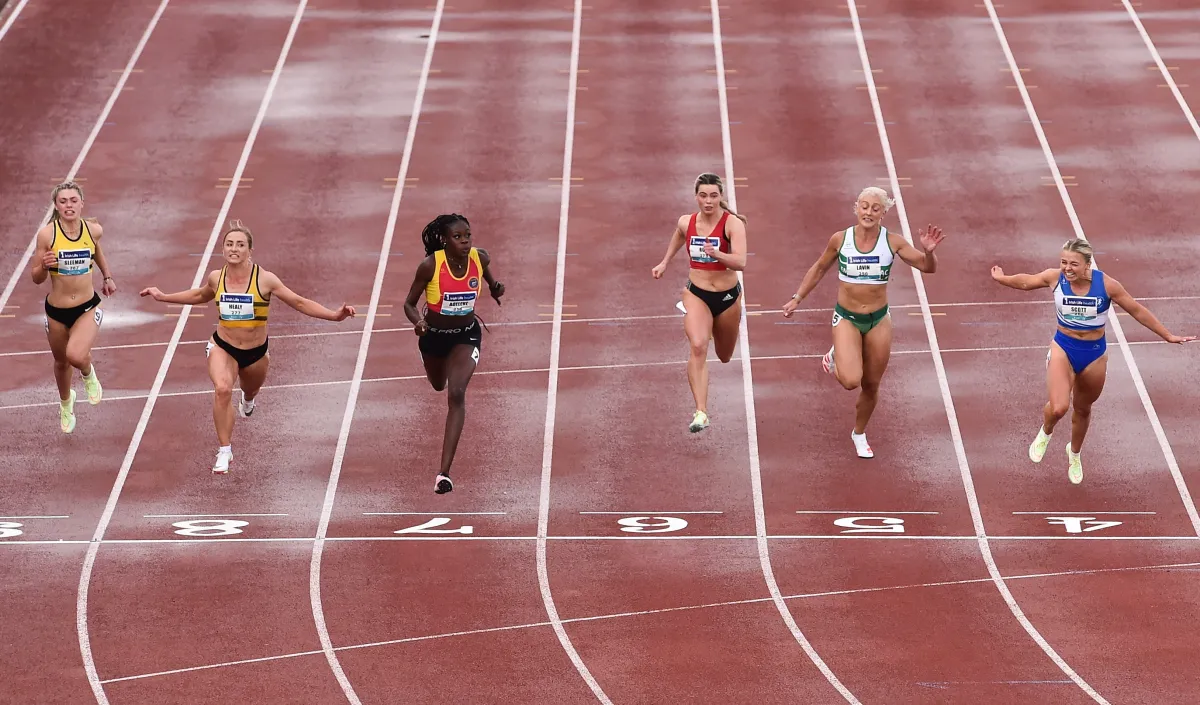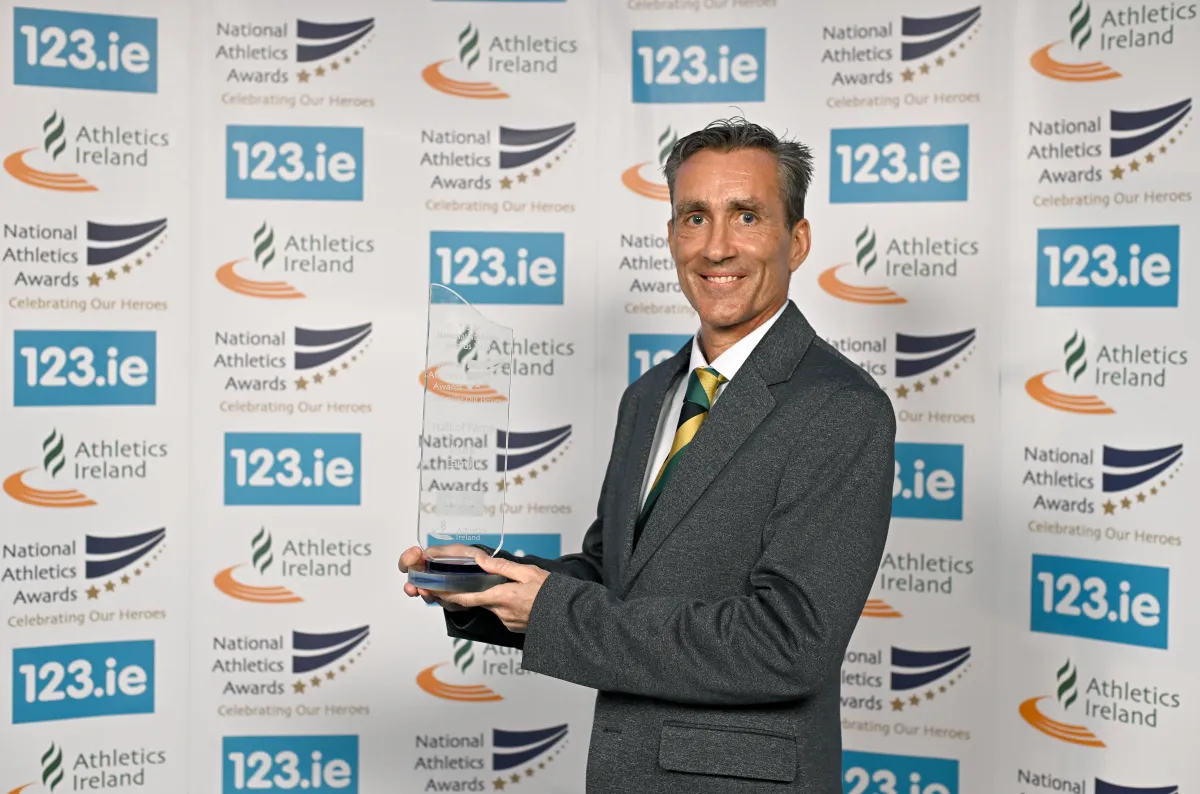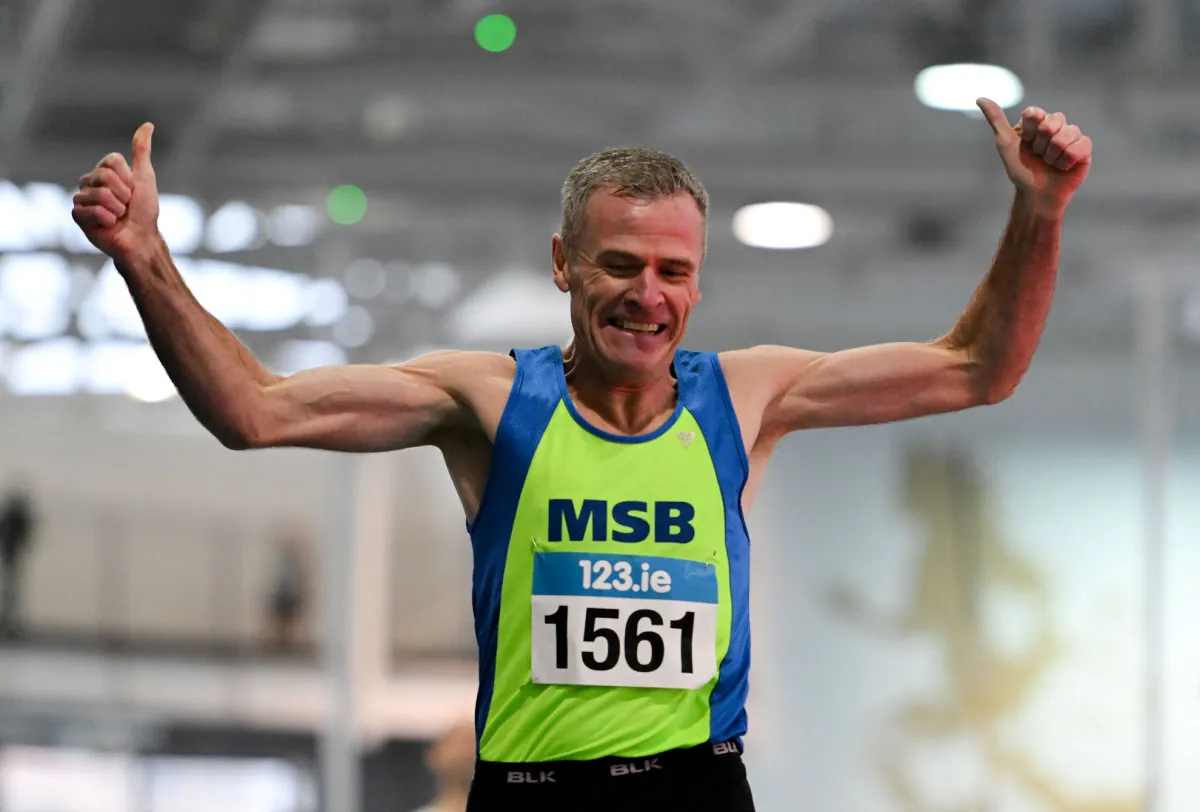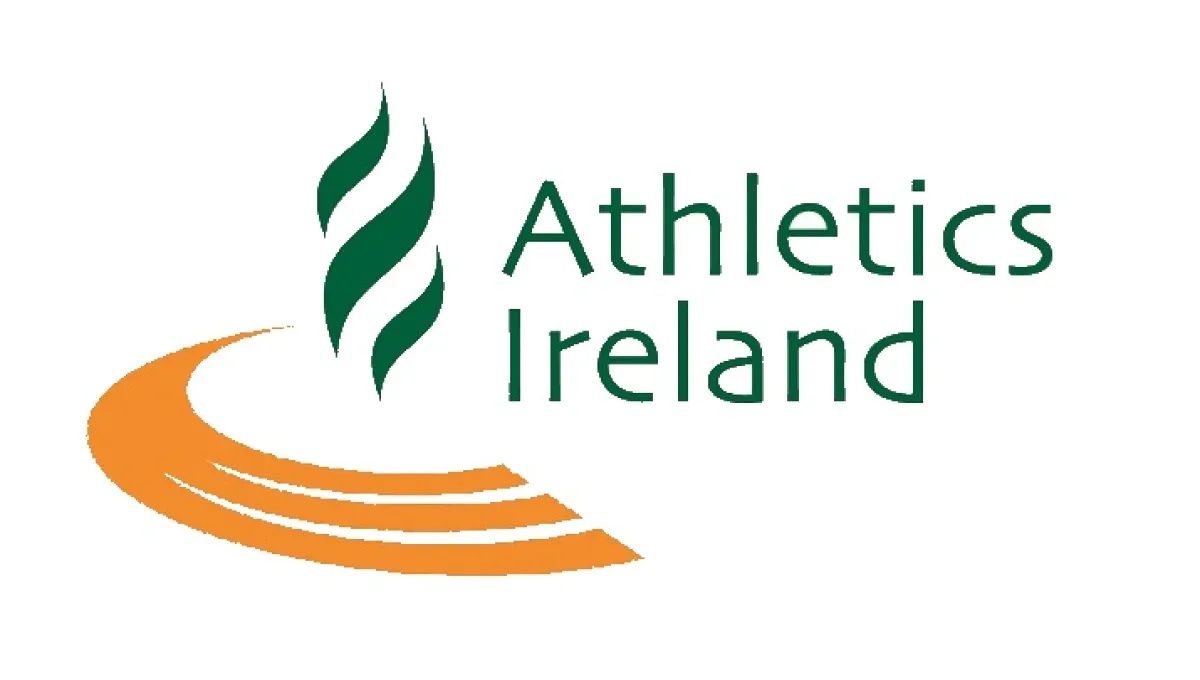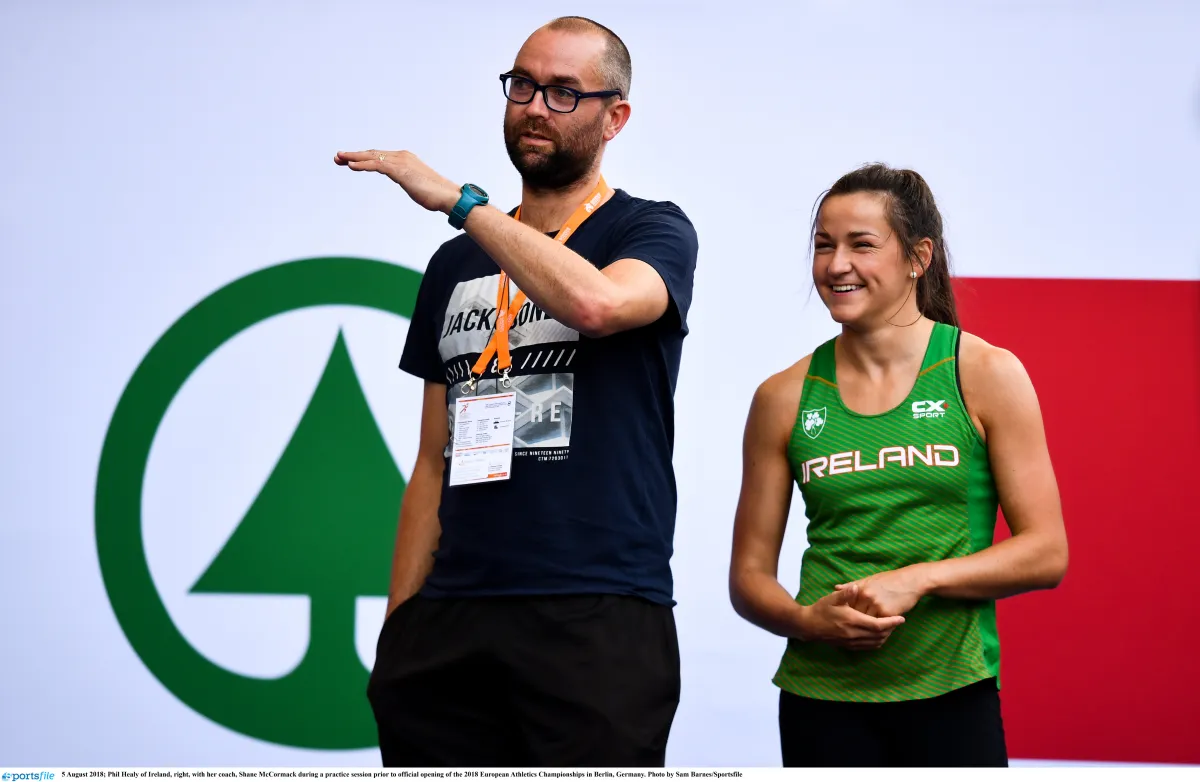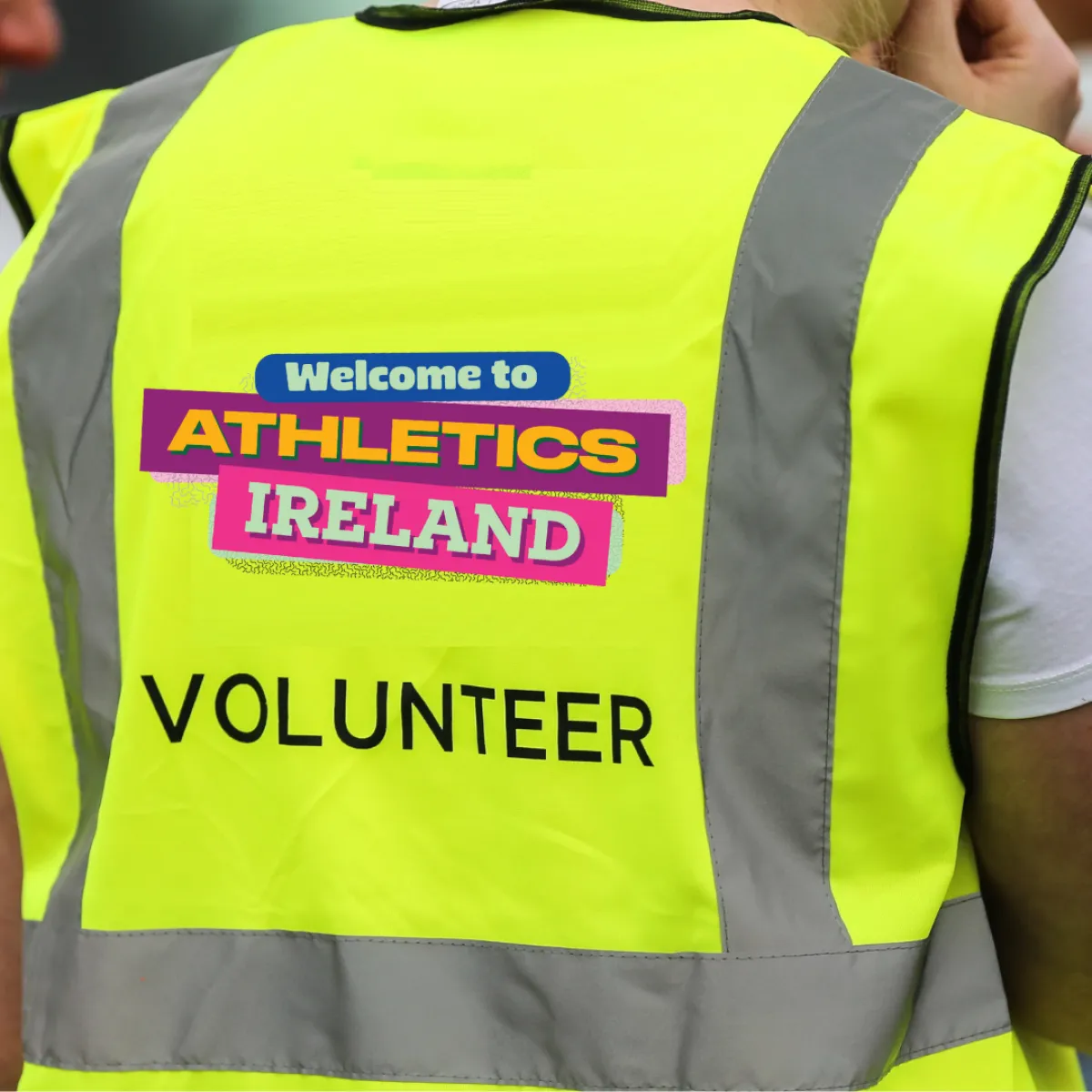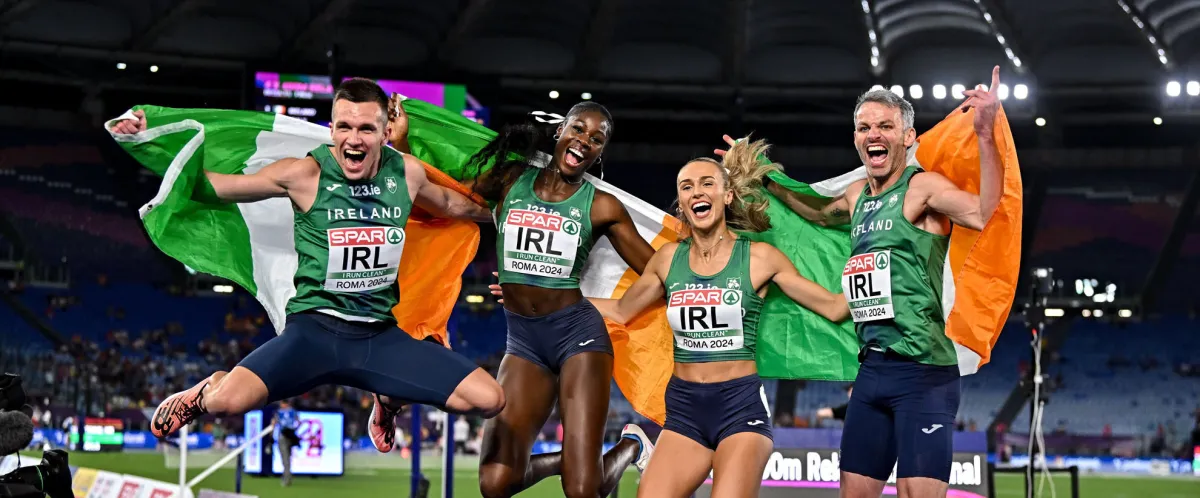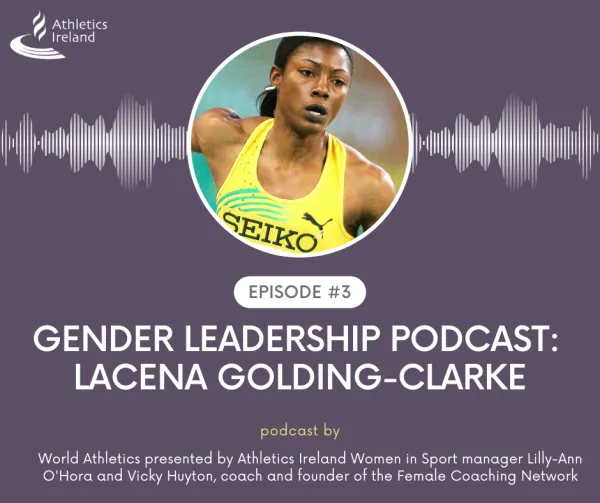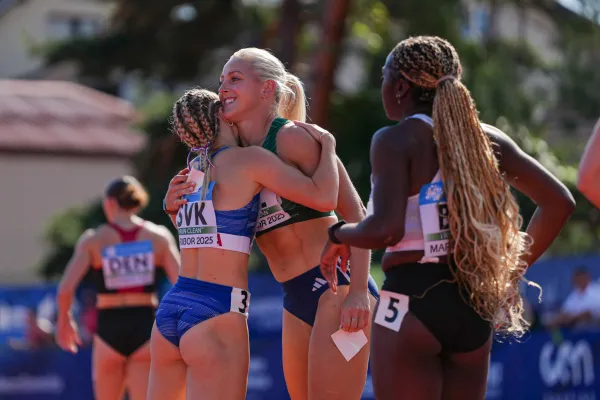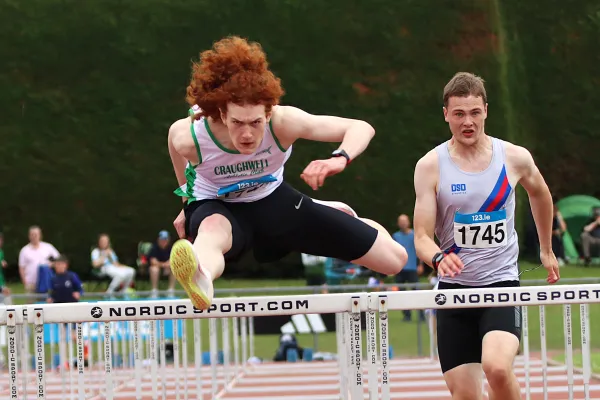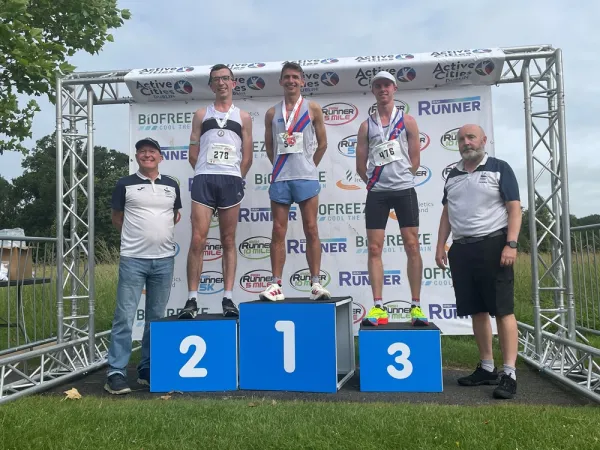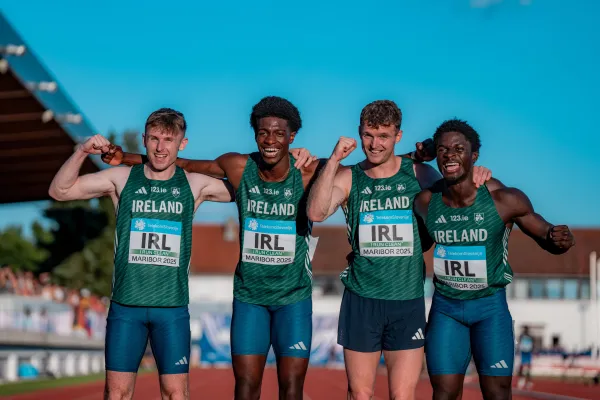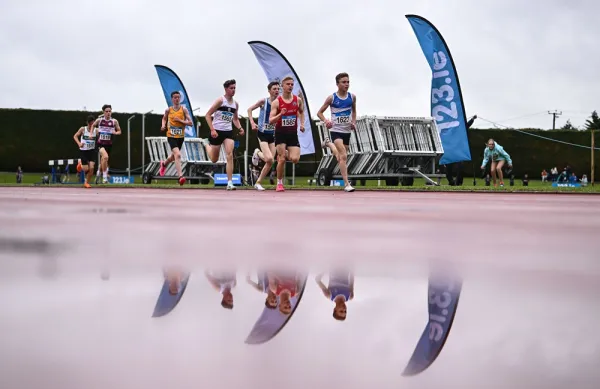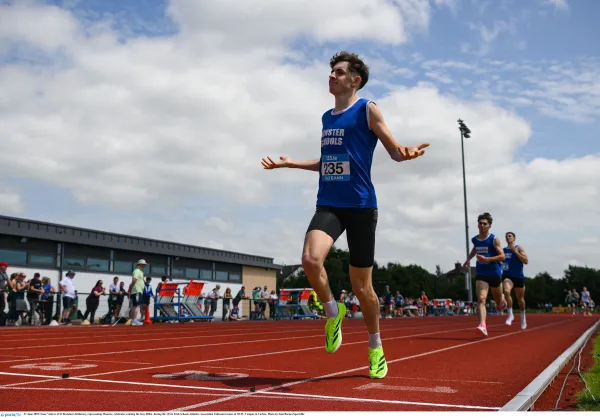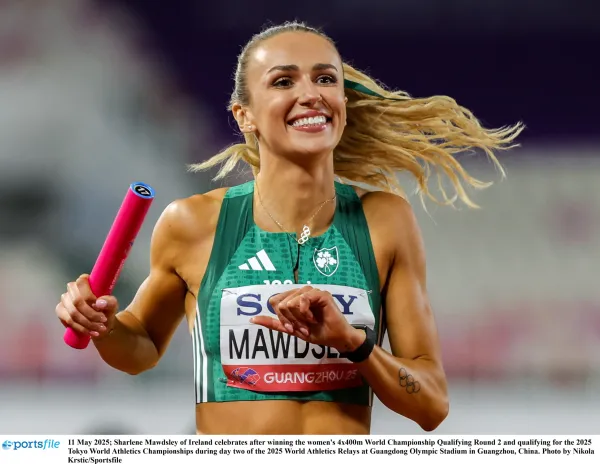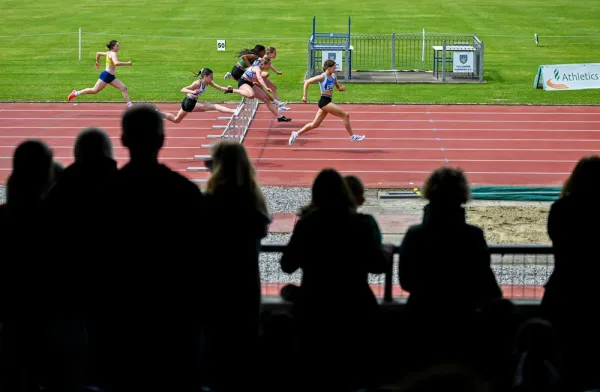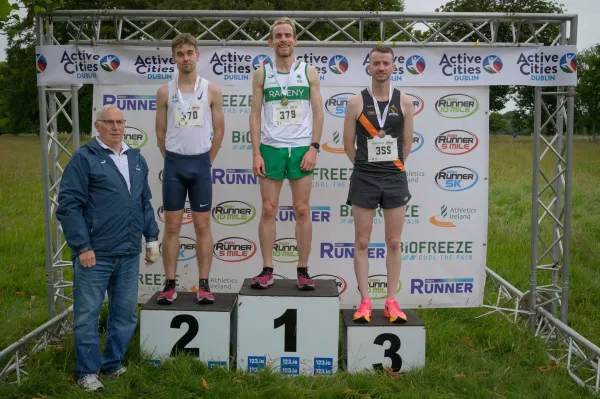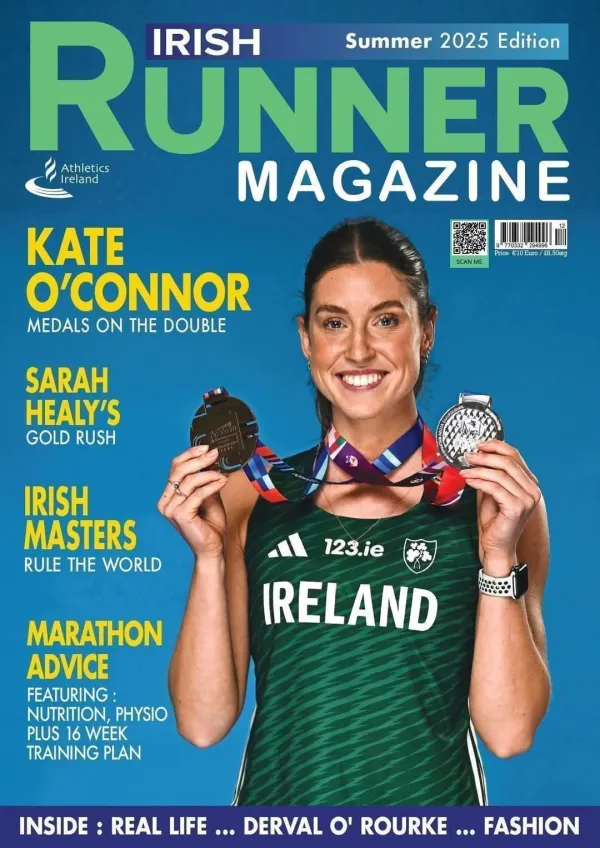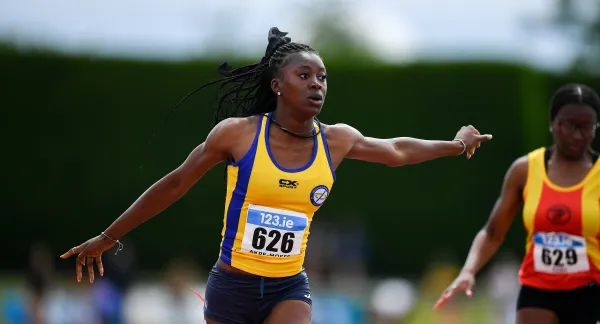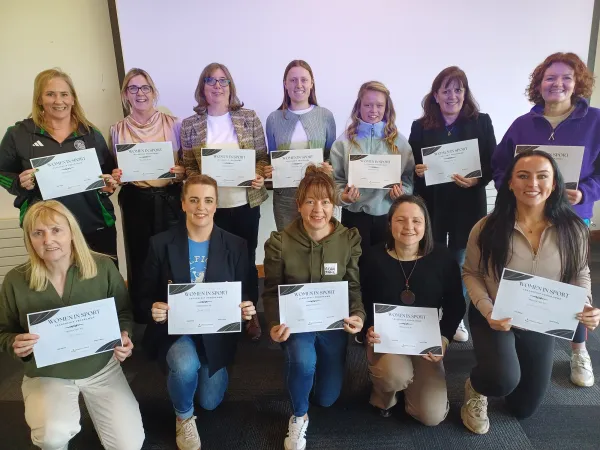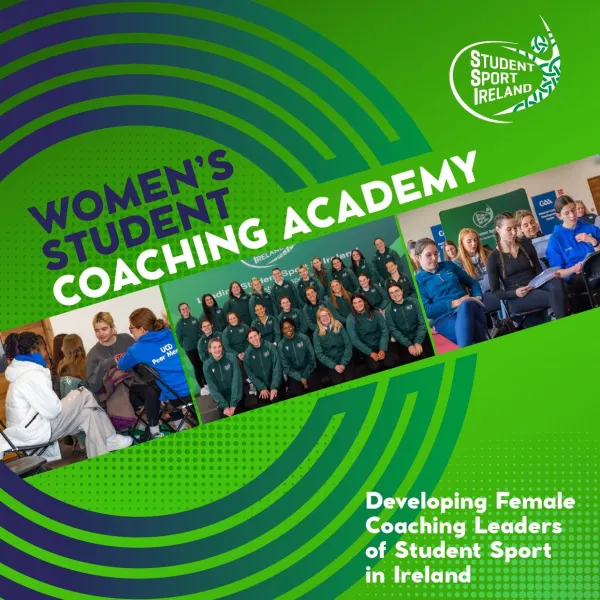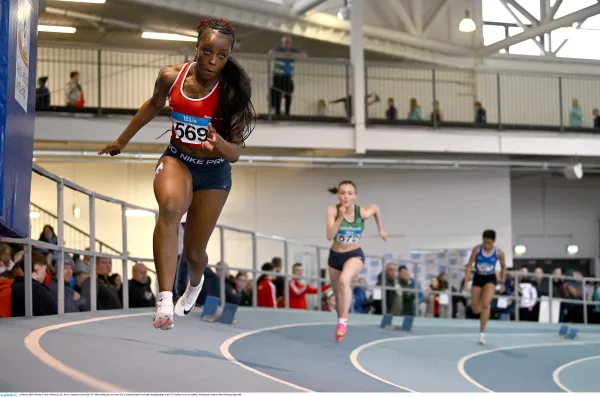Gender leadership podcast: Lacena Golding-Clark
Jamaican sprint hurdler Lacena Golding-Clark (© AFP / Getty Images)
Lacena Golding-Clarke is the third guest of the World Athletics Championships coach series of the gender leadership podcast.
These podcasts are presented by athlete and Athletics Ireland Women in Sport manager Lilly-Ann O'Hora and Vicky Huyton, coach and founder of the Female Coaching Network, as they interview a number of coaches involved with the World Athletics Championships Oregon22, either as a team coach or a personal coach.
Golding-Clarke is a former sprint hurdler who represented Jamaica at three Olympic Games, five World Championships and multiple Commonwealth Games, notably winning 100m hurdles gold in Manchester in 2002.
She retired in 2010 after reaching her sixth consecutive 60m hurdles final at the World Indoor Championships and more recently is known as the coach of world 100m hurdles record-holder Tobi Amusan, who won the world title in Oregon in a wind-assisted 12.06 after breaking the world record with 12.12 in the semifinals.
Golding-Clarke watched Amusan’s world record performance alongside her fellow coach Joanna Hayes in Oregon, and recalls looking at her watch and asking: “Is this the world record, or not?” But her initial thoughts were quickly confirmed when she saw her athlete screaming with joy.
Golding-Clarke felt it was something that had been brewing for a while.
“In 2019, before we travelled to Doha (for the World Championships), I sort of had an inclination that she may come close, but that she might run in the 12.2s," she said.
“In 2020, during the pandemic, we trained so hard. I had a feeling then that she could, but I did not expect that the world record could be broken by such a time. I was thinking she could go 12.19 or 12.18, but I am just happy that I was a part of it. Hoping for a world record every year, but this year it all just happened at once.”
Nigeria’s Amusan has been under the watchful eye of Golding-Clarke since 2016 and her days at the University of Texas at El Paso, where Golding-Clarke helped to take her from a 13.11 athlete to a 12.12 athlete.
Initially, “she had it in her” but it was the technical work that needed attention, so the two slowly built Amusan’s general strength, followed by her mental focus, to ensure she was equipped to overcome all 10 barriers. The focus for 2022 was to work on speed, to be able to hold the hurdle rhythm all the way through to the finish line.
In 2002, Golding-Clarke won at the Commonwealth Games and found herself nervous at this year’s edition in Birmingham, questioning how Amusan’s body would hold up after such an amazing time in Oregon.
“By the grace of God, she won, but it was all confidence,” says Golding-Clarke. “It was Eugene that took her through the rest of the season because she said: 'I did it before, I can do it again!’ I am so proud of how she competed this year. Her season speaks for itself.”
Golding-Clarke also now holds a new role as assistant coach for the women's sprints and hurdles programme at Auburn University. Juggling her collegiate athletes with her professional group of athletes, she mentions there are certain periods that “it can be extremely tiring and I can be very drained at times, but still I have to be mentally tough.”
Her life as an athlete has taught her the fundamental values, to work hard but also be able to sustain her dual roles to manage her own health and wellbeing.
The foundation of Golding-Clarke and Amusan’s success has been built on establishing and maintaining a relationship of trust, while their consistent enthusiasm and devotion to the process has allowed Amusan’s potential to flourish. When discussing some of her most enjoyable coaching moments, Golding-Clarke says: “The most joy for me is to have a family orientated time during our practices. Most of my athletes, particularly in the university scene, our international student athletes and I, have to make a family out of them, for them to feel at home, for them to be the best they want to be. I feel my best aspect is how I care for them, and eventually they become who they want to be.”
For aspiring young hurdlers, Golding-Clarke says: “You don’t have to be overly fast to be one of the greatest hurdlers. It comes with the rhythm you have and the technique, how sound your technique is. You have to be able to hold that pattern for 10 barriers. For me, it’s more rhythm than speed.”
So how does Golding-Clarke enhance her own coaching and development? “I am still learning as I go,” she says. “I learn from coach Beverly Kearney, I still am learning from coach Francis from Jamaica, they are the people that I can always call, ‘these are the things I am stuck on, what do you think? Could you help me pass through this?’ I can always go to them.
"I know for a fact people need mentors, so even though I have a world record-holder, I still need to be mentored.”
